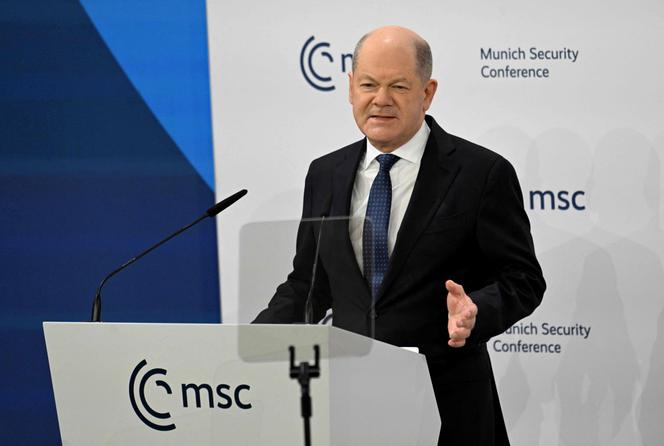


Chancellor Olaf Scholz on Saturday, February 15, said that Germany rejects "outsiders intervening in our democracy," a day after US Vice President JD Vance told Europe in a blistering speech to open up political cooperation with far-right parties.
Scholz, who faces elections on February 23, spoke in Munich, where Vance, on Friday, launched his broadside against Germany and the EU on immigration, free speech and other topics, in a speech later praised by US President Donald Trump.
Vance also met with Alice Weidel, the top candidate of the far-right Alternative for Germany (AfD) party, which has also received strong backing from technology billionaire and Trump ally Elon Musk.
Speaking at the Munich Security Conference, Scholz pushed back against Vance's speech and defended Germany's taboo against cooperating with extremist parties, often dubbed a "firewall."
"We will not accept outsiders intervening in our democracy, in our elections," Scholz said. "That is not appropriate – especially not among friends and allies."
France's Foreign Minister Jean-Noël Barrot also defended European policies after Vance's speech. "Freedom of expression is guaranteed in Europe," Barrot said on X, after Vance alleged it was "in retreat." "Nobody is obliged to adopt our model, but nobody can impose theirs on us," the French minister added.
Scholz started his speech by mentioning Vance's earlier visit to the Nazis' Dachau concentration camp near Munich, and the US vice president's commitment to "never again" allow such crimes to be committed. The Holocaust was the reason "the vast majority of Germans are firmly opposed to those who glorify or justify" the Nazis, Scholz said, recalling that AfD senior figures have trivialized Nazi crimes. "A commitment to 'never again' cannot be reconciled with support for the AfD," Scholz said.
He later stressed that "we are absolutely clear that the extreme right should stay outside the political decision-making process and that there would be no cooperation with them."
Vance had criticized Germany for excluding parties that voice strong concerns over immigration and argued that "democracy rests on the sacred principle that the voice of the people matters." "There's no room for firewalls," he added.
The clash between the traditional allies comes just over a week before the German national elections.
